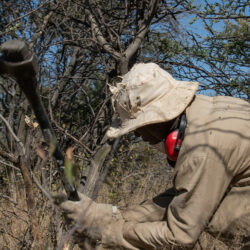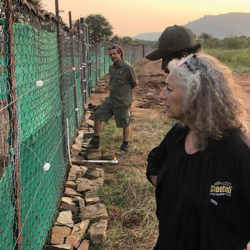Jabs for the Lab – CCF’s Genetics Team Gets Their Vaccines
-
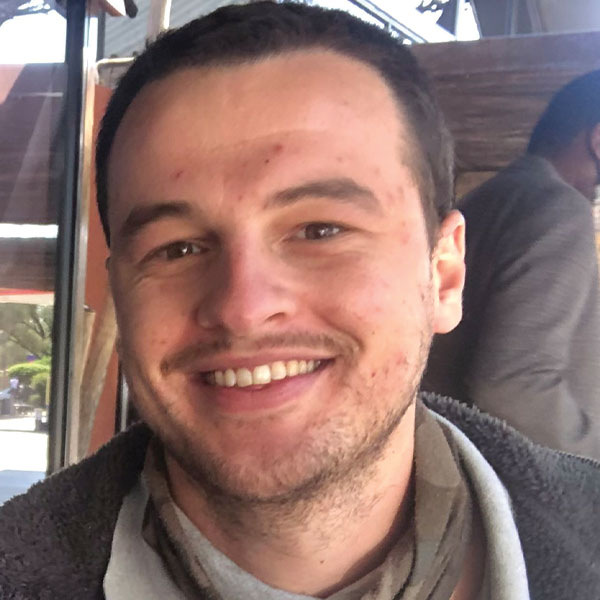
- by Francois Jenkins June 23, 2021
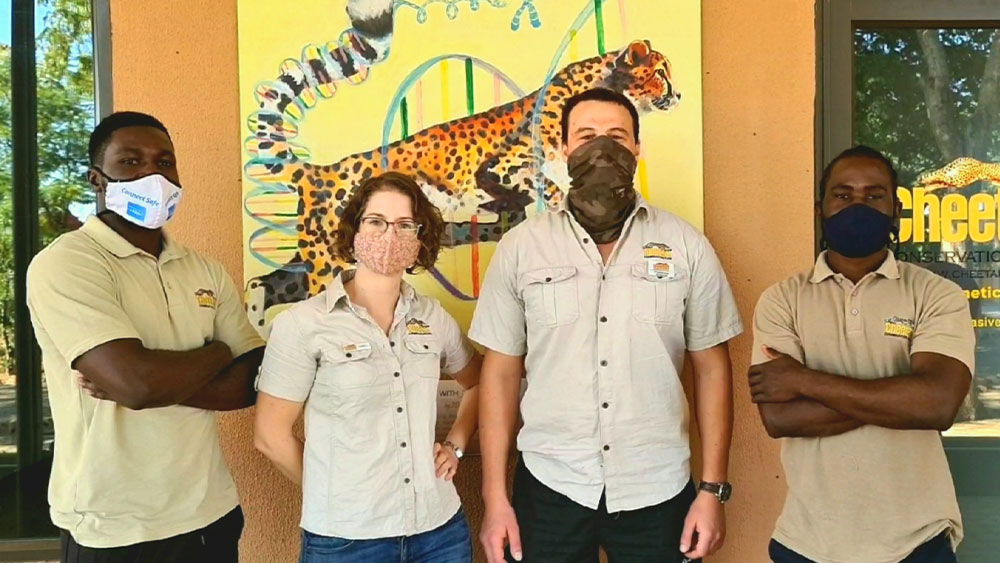
Near Otjiwarongo, at Cheetah Conservation Fund (CCF), lies our research facility that is completely unique to Africa: the Life Technologies Conservation Genetics Laboratory. First established in 2008, the laboratory contains the space and equipment necessary for storing and analysing many different sample types on site.
At our facility, samples that are collected non-invasively – especially scat (faeces) – are the most commonly processed. Scat is subjected to DNA extraction, amplification of the DNA regions of interest, and microsatellite or sequencing analysis. With this information, we can identify different species as well as individuals and their genders. More complex analyses, such as population structure, relatedness and diseases allow for improved conservation management strategies, not only for the cheetah, but other predators and their ecosystems as well.
For years, our laboratory has provided meaningful experiences for Namibian students and recent graduates through internship programmes that prepare them for the next step in their careers. Some of our interns continue their academic career as CCFs very own in-house graduate students or staff. Genetic training is very specific and our equipment is very sensitive and expensive; training therefore requires close, step-by-step guidance and supervision. We spend hours standing and sitting next to our interns to teach them, ensure samples are properly handled, results usable, reagents not wasted or contaminated, equipment handled appropriately, and to help with data entry and result interpretation.
That was until in 2020, the covid pandemic prompted important changes in everybody’s routine that was driven by safety measures to fight the spread of the disease. Maintaining safe distances between people became essential. For us, this meant that we had to significantly reduce laboratory throughput so we could limit space use to 1 person at a time. It also meant that we heavy heartedly had to put a hold to our genetics internship program, as it is not possible to provide the required careful supervision while maintaining social distancing measures.
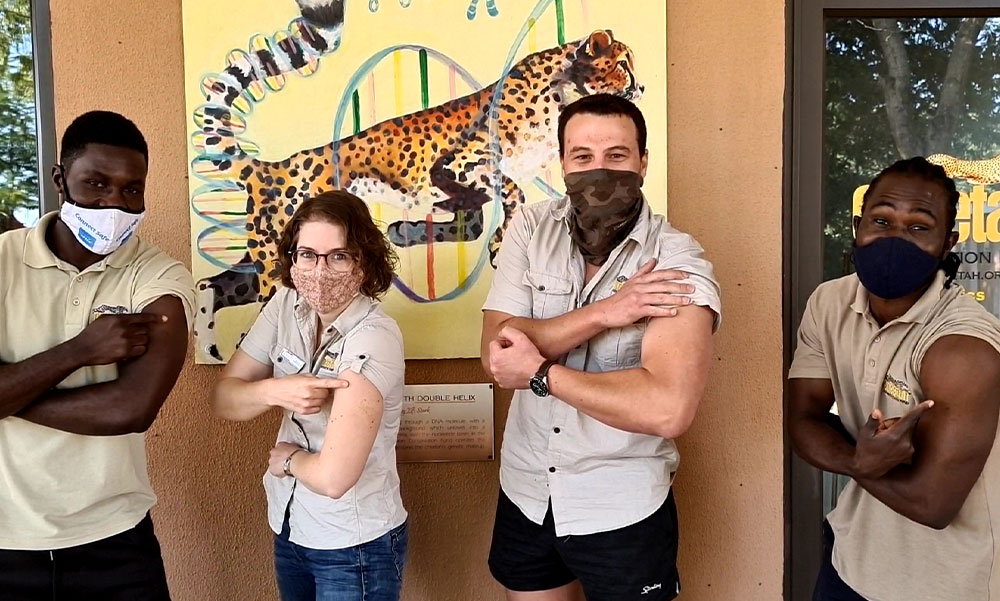
However, with the recent development of vaccines and their availability on the rise, there is much hope to return to more normal ways in the near future. We are excited to announce that all our genetics team got the chance to obtain at least one shot! Dr Anne Schmidt-Küntzel, head of our department, was the first to get offered the opportunity while in the USA. Francois Jenkins, laboratory technician since 2019, and Hafeni Hamalwa, who joined as an intern in 2017 and just submitted his MSc thesis, both got their last shot of the vaccine this week. Julia Zumbroich, laboratory technician since 2018 and soon to be PhD student, is eagerly awaiting her 2nd shot. Our Honour’s student, Benny, who started as an intern in 2019, was delayed by his studies, but finally received his first shot this week, the day after his last exam. Thanks to the safer situation, we are looking forward to soon be able to resume normal laboratory work and accept interns into our programme again.
Related Reading
-
January 20, 2025
Remembering Abdirizak -
April 3, 2023
Clearing the Land for Cheetahs -
October 4, 2022
Veterinary Work at CCF Needs Your Support


